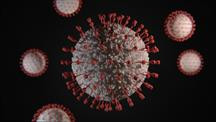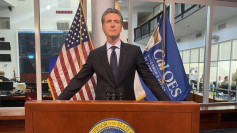A recent Wall Street Journal investigation and renewed claims from Robert Redfield, the former director of the Centers for Disease Control and Prevention (CDC), have reignited controversy over the origins of COVID-19, with suggestions of U.S. complicity in risky research conducted in China. The investigation reveals troubling gaps in the intelligence community's handling of evidence about the pandemic's origins, further fueling suspicions about gain-of-function research conducted at the Wuhan Institute of Virology.
Redfield, speaking on Fox & Friends Weekend, did not hold back in his criticism of U.S. intelligence agencies. "Clearly the intelligence agency has been duplicitous in this cover-up of the true origins of COVID," he said. Redfield further posited that U.S. intelligence assets could have been deployed in the Wuhan lab and may have sought to avoid scrutiny, complicating the narrative of the virus's origins.
The Wall Street Journal report detailed how assessments from scientists at the Pentagon's National Center for Medical Intelligence (NCMI) concluded COVID-19 was likely manipulated in a lab. Despite their findings, this information was excluded from a briefing presented to President Joe Biden in 2021, where only natural-origin theories were emphasized. Jason Bannan, an FBI investigator involved in analyzing the virus's origins, expressed dismay at being excluded from the briefing. "We anticipated the FBI would be asked to attend the briefing," Bannan told the Journal. "I find it surprising that the White House didn't ask."
The controversy over the lab-leak theory, long dismissed as a conspiracy theory by many in the scientific and political community, has been reignited with these revelations. The Journal report highlighted a troubling pattern of suppression and mismanagement of intelligence, leading to an inquiry by the Defense Intelligence Agency's Inspector General into whether scientific assessments were deliberately withheld.
The lab-leak hypothesis gained early traction within the Federal Bureau of Investigation (FBI), which concluded with moderate confidence that the virus originated in a lab. This stance, however, diverged from other agencies within the intelligence community, leading to internal discord over how findings were presented to senior leadership, including the president. Critics allege that efforts to discredit the lab-leak theory, spearheaded by figures like Anthony Fauci, were motivated by concerns over the reputational and policy implications for the scientific community and U.S. funding of risky research abroad.
Adding weight to these claims, Redfield stated, "There really is no evidence of natural spillover whatsoever," referring to the theory that the virus jumped from animals to humans in a market in Wuhan. He went further, calling the virus's manipulation in a lab "a real possibility" and hinted at U.S. involvement in facilitating gain-of-function research outside its borders, where such experiments are restricted domestically.
The political ramifications of these revelations are significant. Representative Brad Wenstrup, chair of the Select Subcommittee on the Coronavirus Pandemic, dismissed earlier dismissals of the lab-leak hypothesis as conspiratorial. "The possibility that COVID-19 emerged because of a laboratory or research-related accident is not a conspiracy theory," he said in the report's opening statement.
Meanwhile, the intelligence community's role in shaping the narrative around COVID-19 remains under scrutiny. Critics such as Mario Nawfal have taken to social media, accusing agencies of selectively presenting findings to downplay evidence of a lab origin. "Who's still covering for what?" Nawfal asked on X.
As President-elect Donald Trump prepares to take office, he has signaled a shift in leadership that could have significant implications for uncovering the pandemic's origins. Trump's incoming CIA director, John Ratcliffe, is expected to take a fresh look at the data, with Redfield expressing optimism about his potential impact. "I think the truth will come out," Redfield said. "I'm very excited about John Ratcliffe being the new CIA director."





